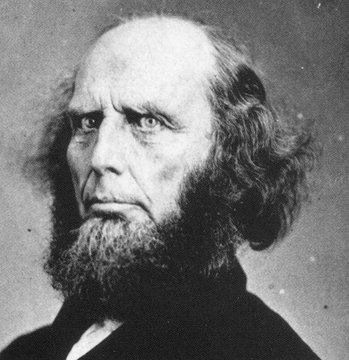Monthly Archives: May 2016
The Invitation
It has amazed me continually as I’ve delved into researching the IFB church that it is built on a foundation of frauds who deny the very core doctrines of the faith.
Did you know that the altar call, or invitation, that is so popular today in so many churches, was an idea developed by a heretic in the 1800’s?
You might be surprised to hear this. If you’ve heard of Charles Finney and think of him as a hero of the faith (as I used to), you might also be surprised to learn that he rejected core Christian doctrine, such as justification by faith alone, and substitutionary atonement. He also denied that we are born with a sin nature. 
The reason that Finney developed the altar call was to pressure people to make a decision for Christ on the spot, making that decision of themselves and reforming themselves in that moment.
The IFB church prides itself on being like the early church, but no such practice can be found in the new testament….or in history of the church before the 1800’s, period.
The idea that a spiritually dead person can will himself into being regenerated is like saying that a corpse can will itself to come to life. It doesn’t happen that way. It CANNOT.
No one can come to Christ unless the Father draws him. He must be born again, not of the flesh or of the will of man, but of God. John 1:13
The altar call might have been effective in getting new people to become members of a church, but it never was effective at converting the soul. It pressures one to make a decision, to attempt to reform their behavior, and to depend on themselves for salvation that can only be brought about by the Holy Spirit.

Turn the other cheek?
The phrase, “turn the other cheek” was one I grew up hearing almost continually during my childhood. I was taught that when someone attacks, abuses, belittles, or mocks me, I should not defend myself against their attacks. Defending myself would be resisting evil, and we are to “turn the other cheek” and allow people to hurt us. We should not only allow it, but allow it JOYFULLY; accepting such abuse as a sign that we are being rewarded for this in Heaven.
The reasoning for this was given as follows: First, Jesus is our example. He is the perfect Son of God and as such, we should be willing to follow his example and listen to his teachings.
Second, Jesus taught us that we are not to resist evil:
38“You have heard that it was said, ‘An eye for an eye and a tooth for a tooth.’ 39But I say to you, Do not resist the one who is evil. But if anyone slaps you on the right cheek, turn to him the other also. 40And if anyone would sue you and take your tunic,h let him have your cloak as well. 41And if anyone forces you to go one mile, go with him two miles. 42Give to the one who begs from you, and do not refuse the one who would borrow from you. Matthew 5:38-48
So according to this, it appeared Jesus is saying that if someone slaps you, you should not only let them slap you, but should offer up the other cheek for them to slap!
If they force you to do something, you should not only do what they forced you to do, but also should go above and beyond.
We were told that when we did this, we were “heaping coals of fire on their head” and that we would be rewarded (Proverbs 25:22).
After all, Jesus was “reviled, and reviled not again” (1 Peter 2:23). He was led as a sheep to slaughter, and He didn’t open his mouth in protest, right? One should be willing to stand there and accept abuse in all forms, never defending themselves against it.
Even in Isaiah 50:6, we could see that Jesus did not defend himself against cruel attacks:
I gave my back to those who strike, and my cheeks to those who pull out the beard; I hid not my face from disgrace and spitting.” Isaiah 50:6
So what are we to do with this information? On the surface, it seems that the IFB has a Biblical basis for saying we should not defend ourselves when we are being treated poorly.
This has led to some of my friends submitting to terrible emotional or physical domestic abuse, sometimes even sexual abuse, while feeling powerless to defend themselves (and/or their children) or protest without fearing God’s wrath.
This is a DEEPLY flawed theology and I feel so upset when I think about the devastating consequences of viewing God as an enabler of systematic abuse.
The Independent Baptist church, as well as most other false religions, do a masterful job with deception. They take one verse out of it’s intended context and change it’s meaning just ever so slightly.
Since they are abusers, they have reason to want to make the Bible allow abuse.
Sometimes they don’t even have to change it- they just have to ISOLATE it from the context, and after learning their theology before reading the text, it gives the appearance that their teaching is Biblically based and sound.
So what is really meant by the proof texts used to support this idea?
Let’s go through the verses one at a time. Matthew 5:38-48:
You have heard that it was said, ‘An eye for an eye and a tooth for a tooth.’
39But I say to you, Do not resist the one who is evil. But if anyone slaps you on the right cheek, turn to him the other also.
40And if anyone would sue you and take your tunic, let him have your cloak as well. 41And if anyone forces you to go one mile, go with him two miles.
42Give to the one who begs from you, and do not refuse the one who would borrow from you.
An “eye for an eye” is referencing the Mosaic law which was given to enforce just penalty for crimes.
If there is serious injury, you are to take life for life, eye for eye, tooth for tooth, hand for hand, foot for foot, burn for burn, wound for wound, bruise for bruise. Exodus 21:23–25.
These verses are set in the context of civil law, as we can see in the previous verse:
When men strive together and hit a pregnant woman, so that her children come out, but there is no harm, the one who hit her shall surely be fined, as the woman’s husband shall impose on him, and he shall pay as the judges determine. Exodus 21:22
From this we can conclude that this is not speaking of a personal settling of matters, but is about a lawful process of settling of matters. The punishment should fit the crime, and not be excessive, or too lenient.
When Jesus said, “You have heard that it was said, ‘An eye for an eye, and a tooth for a tooth’, he was referring to this passage about civil retribution. We should not be seeking REVENGE on our aggressors. We should not be seeking to “make them pay”.
This does NOT mean we cannot speak up and defend ourselves if we are being attacked or wronged!
Having boundaries, and not allowing people the right to hurt us is not the same thing as repaying one with evil.
If Jesus had meant that we literally cannot speak up a all if someone has “slapped us” when it says:
But if anyone slaps you on the right cheek, turn to him the other also.
Then He would be a hypocrite when he spoke out after being slapped himself:
19The high priest then questioned Jesus about his disciples and his teaching. 20Jesus answered him, “I have spoken openly to the world. I have always taught in synagogues and in the temple, where all Jews come together. I have said nothing in secret. 21Why do you ask me? Ask those who have heard me what I said to them; they know what I said.”
22When he had said these things, one of the officers standing by struck Jesus with his hand, saying, “Is that how you answer the high priest?”
23Jesus answered him, “If what I said is wrong, bear witness about the wrong; but if what I said is right, why do you strike me?” 24Annas then sent him bound to Caiaphas the high priest.
Jesus spoke up for himself and did not simply stand there turning the other cheek when he was slapped. He did not say, “It’s ok that you slapped me.” He protested.
If the verse about turning the other cheek meant we could not speak up, Jesus would not have told this high priest that he was in the wrong for striking him.
What does it mean that Jesus was reviled, and reviled not again? It means simply that He didn’t repay evil for evil. That’s what it means. He didn’t pay them back or try to punish them.
He spoke up for himself without avenging himself. He left vengeance up to God the Father.
So what does it mean to feed your enemy and give them drink, to heap coals of fire on their head? Does this mean we tolerate abuse and take it, rewarding our abuser with our good behavior and friendship?
I believe it is clear that we are to have established boundaries from those who have harm in mind for us.
In the example of David, in 1 Samuel 24, we can see that he is running from Saul. He is hiding from him. He was not “turning the other cheek” in the way the IFB church explains it.
David had established boundaries and was keeping himself away from Saul, who sought to kill him. This is despite the fact that David had the capability of killing Saul!
He could have EASILY exacted vengeance on him, but instead removed himself from the situation.
He even wrote psalms expressing his feelings about the evil Saul was doing to him.
One day, David had a chance to get very close to Saul. He could have killed him, and he could have allowed his men to kill him. However, he instructed his men not to touch Saul, and instead of getting revenge, he cut a piece of Saul’s robe.
Once Saul was a safe distance away, David called out to him and let him know that he had an opportunity to kill him and had not. In doing this, David had “fed his enemies” or “done good to those who persecuted him”.
But he drew a line and did not allow himself to be willingly abused in the process!
I hope that this will be encouraging to anyone who has grown up the way I did, believing that to love your enemy, you have to accept and allow abuse, and even rejoice at the abuse. This is a twisting of scripture and I hate that some of my friends are in abusive marriages and other devastating relationships as a result of this perversion of the scripture.
I highly recommend the book, “Boundaries” by Henry Cloud and Dr. John Townsend for help in establishing healthy boundaries in your life.
